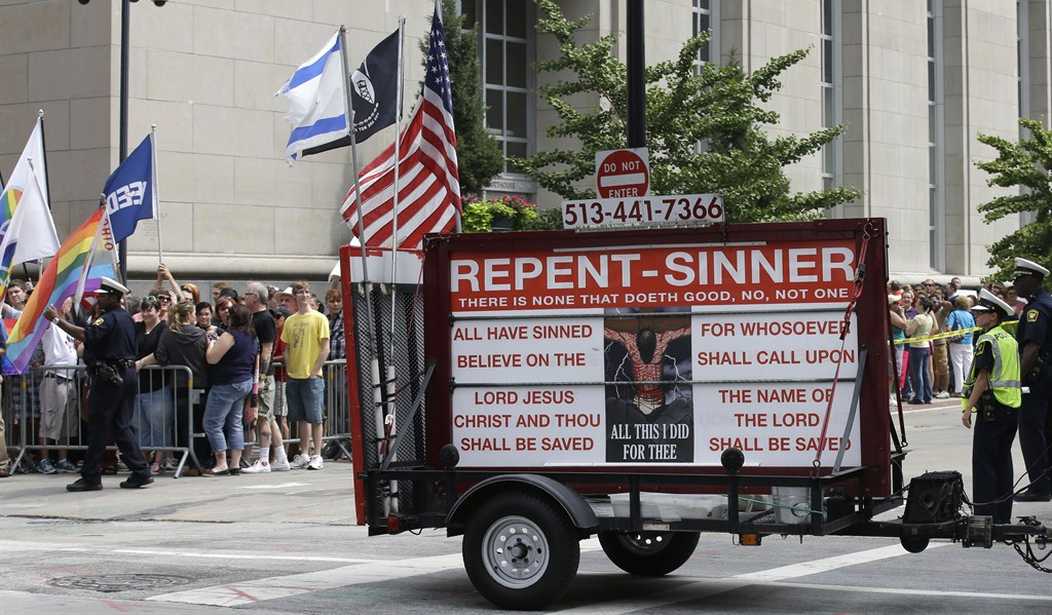Author's Note: All previous volumes of this series are here. The first 56 volumes are compiled into the book "Bible Study For Those Who Don't Read The Bible." "Part Two," featuring volumes 57-113, was published in December 2022.
Thanks for joining our two-part series about the warnings of sin. Last week, in Part 1, I wrote that sin is a topic “no one likes to discuss.” However, if you missed Vol. 234, take five minutes to review while the rest of us wait and watch “Jesus, Friend of Sinners,” a lyric music video performed by Casting Crowns. Pay close attention to the words since they are a powerful Bible study message. (If I were lazy, I would be tempted to end here, but my Jewish guilt would haunt me, so nix that idea.)
Speaking of my ancestral tribe, our New Testament discussion begins with two of the Torah’s foundational events that reference why Jesus is the sacrificial lamb of God who “takes away the sin of the world.”
First, in Exodus Chapter 12, God instructed His people from where to obtain the sacrificial blood to be applied on the top and sides of their door — “coincidentally” forming the points of the cross. Then, God would “pass over” to spare the Israelite's firstborn sons from death while He slayed the Egyptian’s firstborn. The Lord said:
“‘Your lamb shall be without blemish, a male of the first year. You may take it from the sheep or from the goats’” (Exodus 12:5). (Read more in Vol. 107).
The second foundational event is from Leviticus Chapter 16, involving a “scapegoat”—Hebrew for “the goat that departs.” Annually, on the holy Day of Atonement (Yom Kippur), there was a ritual where the high priest “transferred” the sins of the people onto the head of a goat that was released into the wilderness to escape, and wipe clean the sins of the Israelites:
Recommended
“For on that day the priest shall make atonement for you, to cleanse you, that you may be clean from all your sins before the Lord” (Leviticus 16: 29-30).” (See Vol. 28).
The following New Testament passage connects the Hebrew Bible to Jesus when he makes his first adult appearance, ready to begin His ministry. Thus, when St. John the Baptist saw Jesus, he called out His mission, proclaiming:
“‘Behold! The Lamb of God who takes away the sin of the world!’” (John:1:29).
Jesus took away our sins with his blood, represented by the sacrificed Passover lamb. Then, his body, the scapegoat at Yom Kippur, took on the sins of the people and wiped them clean. (Again, read Vol. 107).
Thus, Jesus is the “new scapegoat.” He came to earth to suffer and die, taking on our sins to be forgiven. We can accept that gift by believing in Him along with His gift of eternal life.
Jesus makes it clear that to accept His gift of forgiveness, we must repent of our sins and turn away from sinful behavior. What is sin? As discussed last week, it is disobedience to the Laws of God given to Moses. Jesus summarized all those laws into the greatest two commandments when asked:
“Teacher, which is the greatest commandment in the Law? Jesus replied: ‘Love the Lord your God with all your heart and with all your soul and with all your mind. This is the first and greatest commandment. And the second is like it: Love your neighbor as yourself.’ All the Law and the Prophets hang on these two commandments’” (Matthew 22:36-40).
Let’s review what Jesus said about sin. He admonishes those who may glorify Him with their mouths but who still engage willfully in sinful behavior:
“‘I have never known you. Depart from me, you workers of iniquity’” (Matthew 7:21-23).
Some sins are worse than others. Among the worst sins that someone can commit is causing a child to sin, along with anyone else. Jesus warns in Matthew:
“‘If anyone causes one of these little ones—those who believe in me—to stumble, it would be better for them to have a large millstone hung around their neck and to be drowned in the depths of the sea. Woe to the world because of the things that cause people to stumble! Such things must come, but woe to the person through whom they come!’” (Matthew 18:6-7).
As recorded in John 8:9-11, Jesus told the woman caught in adultery whose life He saved that He would not condemn her, but she had to “go and sin no more.”
Even if we again fall into sin, God will forgive us if we confess and are sincere in our continued attempts to do better. Avoiding sin by attempting to adhere to the Ten Commandments pleases God. But it is human to sin:
Jesus said, “If you were blind, you would not be guilty of sin; but now that you claim you can see, your guilt remains (John 9:41). One sin about which Jesus offers specific instructions is to forgive others who have sinned against us:
“Then Peter came to Jesus and asked, ‘Lord, how many times shall I forgive my brother or sister who sins against me? Up to seven times?’ Jesus answered, ‘I tell you, not seven times, but seventy-seven times’”(Matthew 18: 21-22).
We can forgive sins against each other but still must answer to God. The Jewish authorities accused Jesus of blaspheming since they knew only God could forgive sins:
“‘But I want you to know that the Son of Man has authority on earth to forgive sins. So he said to the paralyzed man, ‘Get up, take your mat and go home’” (Matthew 9:6).
Jesus took on our sins, shedding “my blood of the new covenant, which is poured out for many for the remission of sins" (Matthew 26:27-28). For that reason, Jesus gave us His marching orders:
“He told them, ‘This is what is written: The Messiah will suffer and rise from the dead on the third day, and repentance for the forgiveness of sins will be preached in his name to all nations, beginning at Jerusalem’” (Luke 24:46-47).
About that sacrifice made by Jesus, St. Paul wrote:
“For all have sinned and fall short of the glory of God, and all are justified freely by his grace through the redemption that came by Christ Jesus. God presented Christ as a sacrifice of atonement, through the shedding of his blood—to be received by faith” (Romans 3:23-25).
Here is sin’s simple truth to keep in mind from John the Apostle:
"If we claim to be without sin, we deceive ourselves, and the truth is not in us" (1 John 1:8). Finally, St. Paul’s most popular verse and lesson about sin:
"For the wages of sin is death, but the gift of God is eternal life in Christ Jesus our Lord" (Romans 6:23). Amen to that. Now, go and sin no more!
Myra Kahn Adams is a conservative political and religious writer with numerous national credits. Her book, "Bible Study For Those Who Don't Read The Bible," reprints the first 56 volumes of this popular study. "Part 2,” with the same title, reprints Vols. 57-113. Order it here.
She is also the Executive Director of the National Shroud of Turin Exhibit, which is dedicated to building a permanent Shroud of Turin exhibit in Washington, D.C. The National Shroud of Turin Exhibit recently hosted a four-day exhibit (with a VIP guest) at the National Eucharistic Congress in Indianapolis, IN. Contact: <MyraAdams01@gmail.com>























Join the conversation as a VIP Member